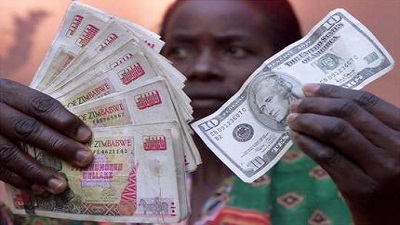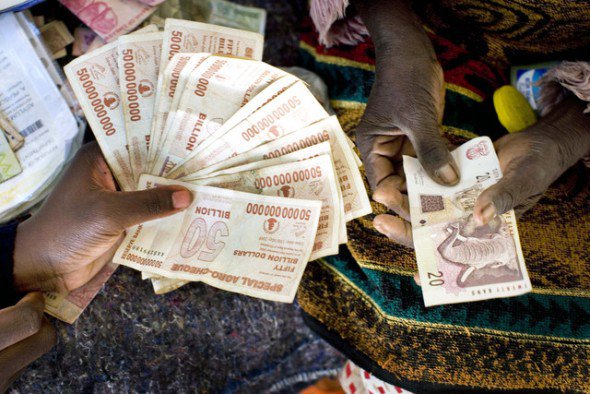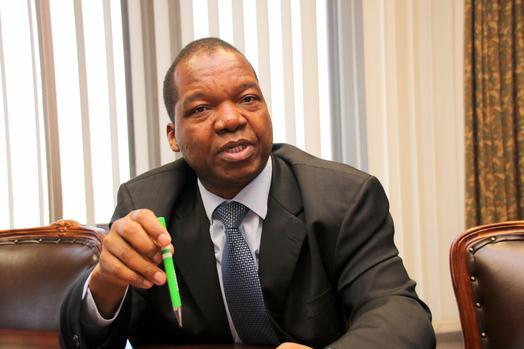- Will you use bitcoin to send money to Zimbabwe ?
I have been using bitcoin to send money to Zimbabwe for more than a year in order to save money on fees and make a small profit on the exchange rate. As a result, I now use only about $275 to send $300 to my parents’ EcoCash account. This represents approximately $35 in savings per transaction compared to the $310 I previously used by channeling remittances through Money Gram. This method only requires moderate computer skills and is a good way to experiment with a very interesting technology.
This method works by taking advantage of bitcoin exchanges—websites where bitcoin buyers and sellers execute trades. First, I buy bitcoin in the United States on the exchange Coinbase. Then I transfer this bitcoin to the Zimbabwean exchange BitcoinFundi in order to sell it to a buyer in Zimbabwe.
There is more demand than supply for bitcoin in Zimbabwe, so I usually sell my coins for about 10% above what I pay in the United States—even after accounting for BitcoinFundi’s 1% transaction fee. Finally, after someone in Zimbabwe buys my bitcoin, I withdraw US dollars to the EcoCash account of my recipient. This person does not need to know anything about bitcoin, or even that it was used in the transaction, taking away the perceived technical pain often associated with Bitcoin. Furthermore, I am able to withdraw to as many recipients as I want for free—a useful feature when I want to send someone $5 of pocket money.
This method does entail some risk and inconvenience. Bitcoin can be tremendously volatile so you can lose (or gain) value on your holdings in the time it takes to complete a transaction. Bitcoin is also prone to theft by hacking so you put your funds at risk when you store them on exchanges. Also, the low volume of transactions on BitcoinFundi means that it usually takes a few days for a buyer to come along.
Despite these risks, bitcoin is a fascinating technology due to its ability to easily transport value across international borders and store value outside of the traditional banking system. These factors—combined with the savings associated with the method above—make bitcoin useful in many entrepreneurial endeavors. For example, it could potentially be a lucrative endeavor to start an artisanal remittance service by keeping bitcoin and cash floats on various exchanges, arbitraging price differentials between markets, and undercutting Western Union and Money Gram by charging only a 5% fee.
Advanced users could even program a trading bot to constantly adjust orders on BitcoinFundi to track price movements on another exchange, automatically trigger a buy on a foreign exchange upon a sale in Zimbabwe, and send email or SMS notifications when transactions occur. Of course, transferring money for other people usually requires obtaining licenses and paying taxes in the countries where you operate. Violating these laws can easily get you into deep legal trouble and bitcoin is NOT anonymous as some people think—especially after you submit your identification to open accounts on bitcoin exchanges.
It remains to be seen if bitcoin will still be around in a decade to be used to send money to Zimbabwe , but there are some positive indicators. Exchanges like BitcoinFundi are increasingly available around the world, and are attracting a lot of attention from investors. UnoCoin in India just raised US $1.5 million, while Mexico’s Bitso secured US $2.5 million in funding. Meanwhile, the Digital Currency Group (a major investor in bitcoin exchanges), recently reported that monthly bitcoin-based remittances have increased from $5 million to $40 million during 2016 alone.
Taking BitcoinFundi for a spin is one way to get some hands-on experience with what some people speculate will become “the future of money.” CoinDesk has a good resource for learning more about what bitcoin is and how it works. To get started, view BitcoinFundi’s tutorials on depositing bitcoin, executing trades, and withdrawing funds to EcoCash. Also, consider attending the Blockchain Summer School in Harare this November 22-25. I will be discussing ethical issues related to blockchain technology.
This is a guest post by William Suk, a Bitcoin enthusiast AND he used bitcoin to send money to Zimbabwe






